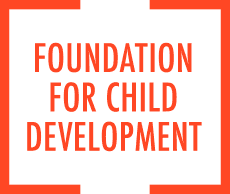https://www.fcd-us.org/the-effects-of-universal-pre-k-in-oklahoma-research-highlights-and-implications/
Oklahoma is one of only three states in the nation to offer a free PreKindergarten (PreK) program to all students in participating school districts on a voluntary basis. Fortuitous circumstances in Tulsa, Oklahoma, the state’s largest school district, permitted an unusually rigorous evaluation of the PreK program in Tulsa. Because four-year-olds beginning PreK and five-year-olds beginning kindergarten were administered the same test in September 2001 and because strict eligibility cut-offs were applied, based on date of birth, it was possible to control for selection effects, in addition to gender, race/ethnicity, school lunch eligibility, and precise date of birth. The evaluation showed strong positive effects of the PreK program on children’s language and cognitive test scores, but not on scores for social-emotional or motor skills.
Hispanic children benefited most from the program and black children also showed sharp gains, especially when they attended full-day programs. In contrast, only those white children enrolled in a half-day PreK program showed significant gains and only in language skills. A similar pattern of results characterized children who qualified for a free lunch, for whom significant benefits derived from full-and part-day programs; children who qualified for a reduced price lunch, for whom only full-day programs produced gains; and children who did not qualify for lunch benefits, where no net gain was apparent. The results are discussed in light of contemporary controversies regarding targeted or universal PreK programs; full- or part-day programming; public school or multiple delivery sites; strategies for ensuring high quality, effective programs; and the need for rigorous program evaluations.
